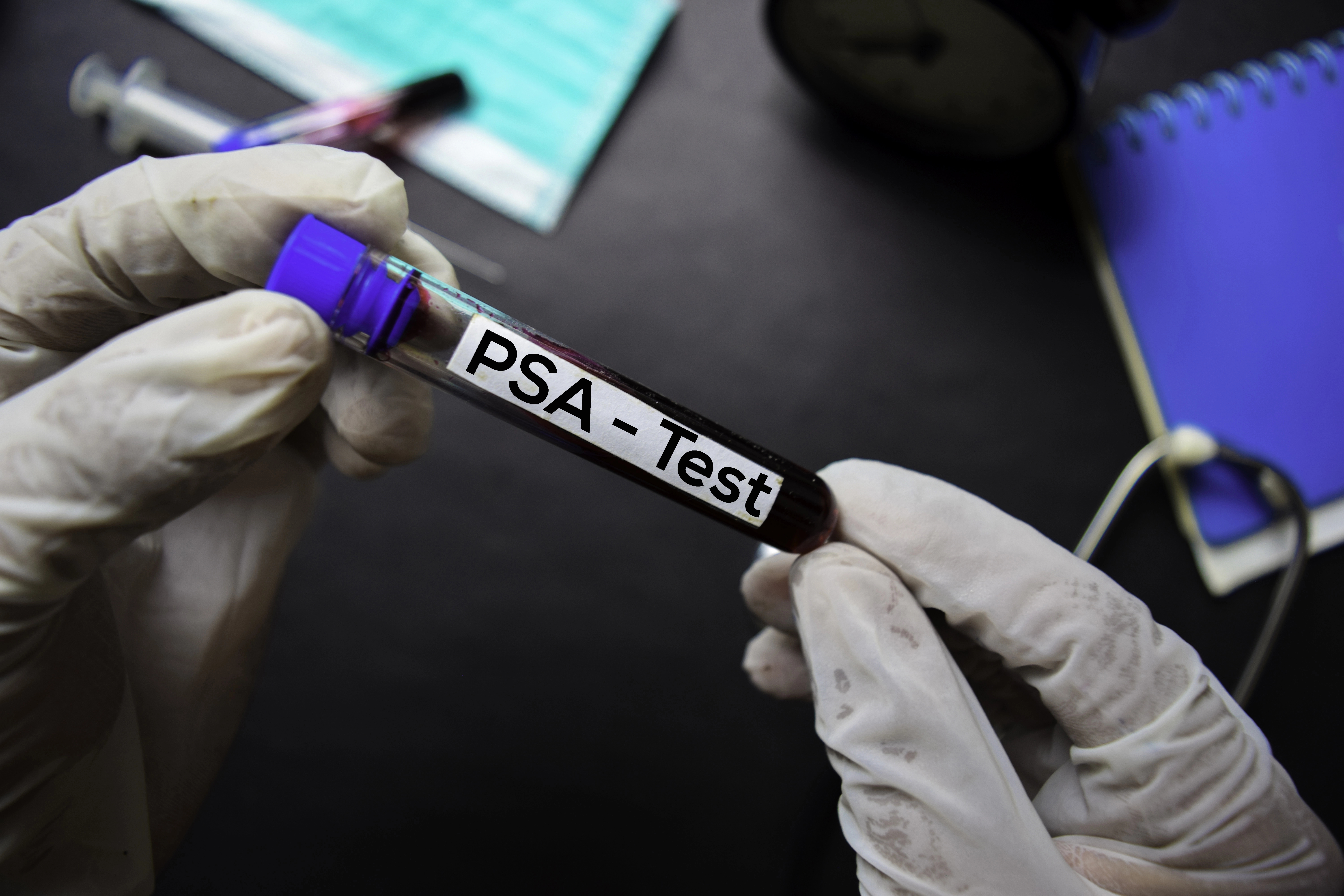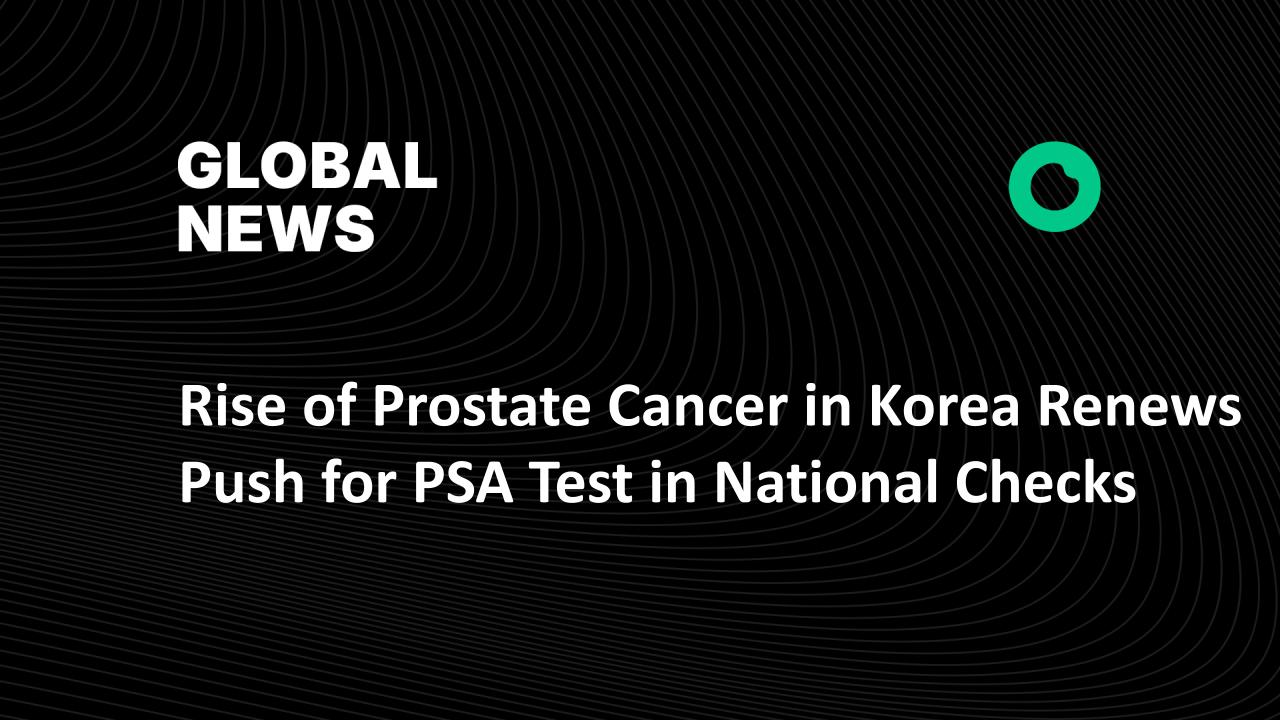Prostate cancer in Korea has climbed to the second most common cancer among men, and leading specialists are urging the government to add the prostate-specific antigen (PSA) blood test to the National Cancer Screening Program. According to Korea Biomedical Review, the appeal was made at a press briefing in Seoul, where urologic oncologists argued that an aging population and the absence of a structured screening pathway for men are pushing many diagnoses into later, harder-to-treat stages. The clinicians framed the issue as a gap in the country’s otherwise mature cancer-control strategy: while women have institutionalized pathways for breast and cervical screening, men lack an equivalent channel for early detection of prostate cancer.
At the briefing, experts pointed to registry data showing 27,754 new prostate cancer cases in 2022—about 7.4% of all cancer diagnoses—moving the disease from fourth place in 2021 to second among male cancers within a single year. As Korea Biomedical Review reported, overall five-year survival for prostate cancer remains high in Korea, but that figure masks sharp differences by stage at diagnosis. When detected early and confined to the prostate, survival approaches 100%; when found after it has spread, survival drops to roughly half. Clinicians said that pattern underscores the value of finding cancers sooner, when curative options are most realistic and side effects can often be minimized.
The demographic profile of patients also adds urgency. According to Korea Biomedical Review, the average age at diagnosis is around 71, and more than 90% of patients are 60 or older. In addition, an analysis spanning roughly 71,000 cases from 2010 to 2020 found that a majority of Korean men were already in higher-risk categories at the time of diagnosis—higher than rates typically reported in many high-income countries. Physicians said this suggests missed opportunities for earlier detection and a need for clear guidance that helps men access PSA testing and appropriate follow-up care before symptoms appear.

Photo: Depositphotos
Against that backdrop, professional societies are calling for PSA to be offered routinely as part of national health checks, with careful guardrails to balance benefits and risks. The PSA test itself is a simple blood draw that measures a protein produced by the prostate. Elevated levels do not confirm cancer, but they can flag the need for further assessment, such as repeat PSA testing, MRI, or biopsy. Advocates say that integrating PSA into existing checkup infrastructure would be a relatively low-burden way to shift more diagnoses to earlier stages, reduce the number of patients presenting with advanced disease, and ease downstream costs associated with complex treatments.
Sports Chosun reported that Korean urologic oncology leaders emphasized how a risk-stratified approach can help mitigate well-known trade-offs of PSA screening—namely false positives and potential overdiagnosis. In that framework, PSA serves as an initial signal rather than a stand-alone trigger for intervention. Subsequent steps are tailored to the individual, incorporating PSA level, Gleason score, imaging findings, and tumor stage to guide decisions about active surveillance versus definitive treatment. Experts said this modern pathway is intended to reduce unnecessary procedures while preserving the benefits of catching dangerous cancers before they spread.
The press briefing also highlighted broader trends shaping care. According to Korea Biomedical Review, precision-medicine strategies—ranging from genomic testing to targeted agents like PARP inhibitors and PSMA-directed radioligand therapies—are expanding options for men with advanced disease. These innovations, combined with PSMA-PET imaging and theranostics, can improve outcomes but often come with access and affordability challenges. Clinicians argued that earlier detection can help more patients remain eligible for less intensive treatments, reduce the need for costly late-stage regimens, and improve quality of life.
Public awareness efforts are growing alongside the policy discussion. As Sports Chosun noted, professional groups have designated the third week of September as a national awareness week to encourage men to learn their risk and discuss PSA testing with their doctors. Physicians at the briefing said a national recommendation would help standardize those conversations, reduce confusion, and ensure that men at average and higher risk receive consistent, evidence-based guidance across the health system.
Policy makers, the clinicians said, will need to weigh the early-detection benefits against the potential harms, but they stressed that international experience and Korea’s own data increasingly support a measured rollout. The proposal many advocate is incremental: begin by offering PSA opportunistically or as part of routine health checks for men in age groups where the balance of benefits and harms is most favorable, pair testing with clear follow-up algorithms, and monitor outcomes to refine eligibility and intervals over time.

What Drives Screening Uptake? Exploring Culture, Policy, and Innovation Beyond the Numbers


